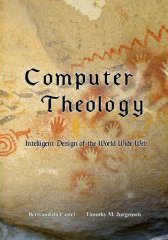PRESS
COMPUTER THEOLOGY |
||||
|
batteries), new portable power mechanisms (e.g.
fuel cells and supercapacitors), and significant improvements in the efficiency
of integrated circuit chip technology relative to power consumption and heat
dissipation. In the two-component architecture that we described above, power
provision can be assumed to derive from the containing body of the transcendent
personal device and subsequently provided to the trusted core agent. Existing
families of power quality sensors within the trusted core agent then allow it
to determine that power has been continuously applied. Consequently, the
trusted core agent is expected to continuously monitor the security state of
the body, allowing trust in the operation of the transcendent personal device
to build over long periods of effective behavior; in essence, trust is derived
from reputation. Indeed, current battery technology allows for the recharging
of batteries within the body while operation of the transcendent personal
device continues unabated. The inclusion of enhanced supercapacitors offers the
prospect of a much longer latency between the complete dissipation of battery
power and the availability of recharging facilities. If power is continuously available, then
the trusted core agent can reasonably perform the tasks of securely monitoring
time and location. A secure time-stamp emanating from the trusted core agent
and a secure location stamp will allow the transcendent personal device to more
completely form a deictic center for the person within the external, physical
and electronic worlds. This capability will change the form of the language
through which policy is conveyed, allowing something closer to natural
communication through deictic conversation on the part of the bearer rather
than a brief from the bearer’s attorney. In other words, the device offers the
prospect of encompassing the role of shaman in purely human social orders. Unlike the human mind, computers are not
typically driven entirely by what we might think of as sensory stimuli. Even
real-time, sometimes called process control computers have some
significant level of background tasking that they perform whenever all other
sensory input is quiet. In general in computer systems, the continuous flow of
awareness on the part of the computer is driven by a continuous, temporally
repetitive stimulus; in other words, a clock.
At repetitive intervals, a clock stimulus is emitted that drives a succession
of recursive task queues; every 17 milliseconds perform a task off of this
queue, every 34 milliseconds perform a task off of this queue, and so on. In
this way, a computer prevents a single task from completely monopolizing the
machine. In Chapter 6, we considered what would happen if the human mind were
to dedicate itself to consideration of the statement “This sentence is false.”
We suggested that the mind is able to limit the degree to which it might dwell
on such a thought. In the case of computers, the basic underlying mechanism
that would allow one to build software that might mimic selectiveness of the
human mind would be a clock driven, hierarchical series of task queues that
determine what a processor is thinking about at any instant. Even with a
periodic clock stimulus, of course, one still must be careful to enforce
preemptive scheduling of task queues. Otherwise, a task that is going to
consider the statement “This sentence is false.” might get control of the
processor and never relinquish it. That way madness lies. As a purely recurrent indicator of the passage of time, a clock signal can be derived by applying power to an oscillator circuit; when power is halted, the clock signal stops. Within a transcendent personal device, a continuous clock, even if emitted from the body of the transcendent personal device, allows both the body and the trusted core agent to maintain continuous vigilance over themselves and their connection to the outside world. Recall that back in Chapter 4 we discussed a view put forward by Klaus Scherer that emotions provide for cognitive consideration that lies between sensory input and motor system response, and that the level of emotional response establishes the effective time interval within which to effect a motor response to sensory input. |
||||
|
||||
© Midori Press, LLC, 2008. All rights reserved for all countries. (Inquiries) The contents of ComputerTheology: Intelligent Design of the World Wide Web are presented for the sole purpose of on-line reading to allow the reader to determine whether to purchase the book. Reproduction and other derivative works are expressly forbidden without the written consent of Midori Press. Legal deposit with the US Library of Congress 1-33735636, 2007.
|
ComputerTheology Intelligent Design of the World Wide Web Bertrand du Castel and Timothy M. Jurgensen Midori Press, Austin Texas 1st Edition 2008 (468 pp) ISBN 0-9801821-1-5 |
Book available at Midori Press (regular) |
